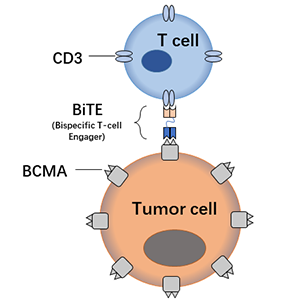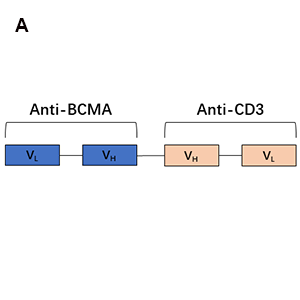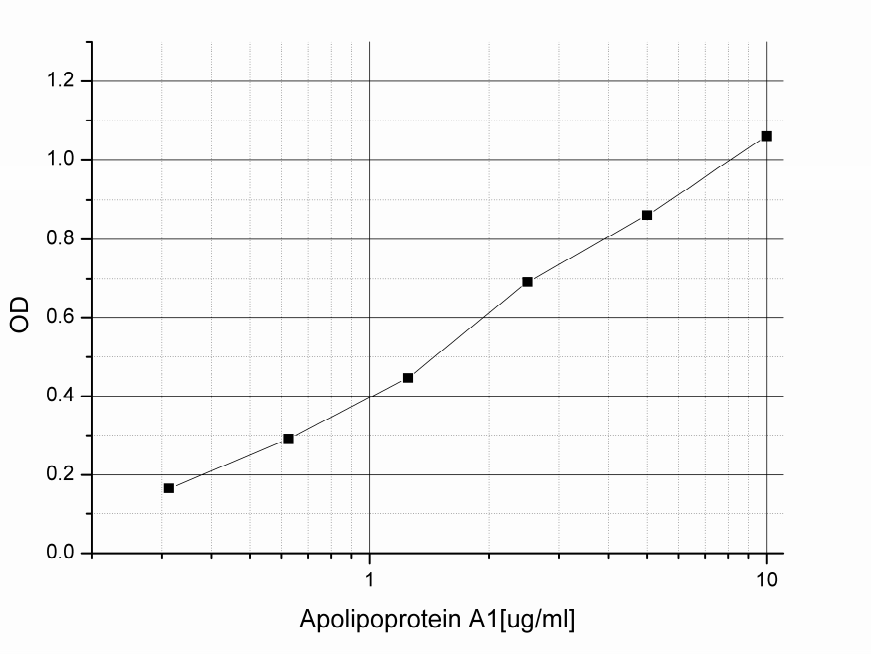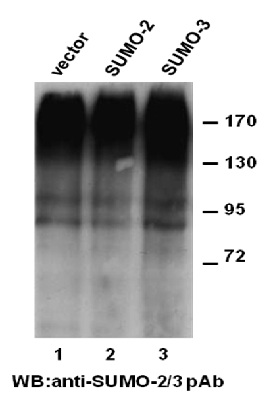
Email Us:info@neweastbio.com
Call Us:(+1) 610-945-2007

Email Us:info@neweastbio.com
Call Us:(+1) 610-945-2007

Size:100 μg
Price:$ 445
Brand:NewEast  Place of Origin:USA
Immunogen:
Place of Origin:USA
Immunogen:
| Cat.#: 28164 | ||
| Product Name: Anti-BCMA Bispecific(DM4) | ||
| Synonyms: TNFRSF17 | ||
| Description: Anti-BCMA bispecific antibody(DM4) | ||
| Background: BiTE bispecific antibody is an Engineered fusion protein constructed from two single-chain variable fragments (scFvs) of different monoclonal antibodies. One of the scFvs will be constructed from an anti-CD3 monoclonal antibody; and the other scFv fragment which linked by a linker region will be made from an anti-Tumor cell specific monoclonal antibody.The B-cell maturation protein (BCMA or BCM) is a member of the TNF-receptor superfamily. This receptor is preferentially expressed in mature B lymphocytes; and may be important for B cell development and autoimmune response. This receptor has been shown to specifically bind to the tumor necrosis factor (ligand) superfamily; member 13b (TNFSF13B:TALL-1:BAFF); and to lead to NF-kappaB and MAPK8:JNK activation. This receptor also binds to various TRAF family members; and thus may transduce signals for cell survival and proliferation. [provided by RefSeq; Jul 2008] | ||
| Applications: Flow Cyt; MM Tumor cell killing | ||
| Recommended Dilutions: Flow Cyt 1:100; MMTumor cell killing | ||
| Host Species: Rabbit | ||
| Isotype: Rabbit scfv | ||
| Purification: Purified from cell culture supernatant by affinity chromatography | ||
| Species Reactivity: Human BCMA | ||
| Constituents: Lyophilized from sterile PBS, pH 7.4. 5 % – 8% trehalose is added as protectants before lyophilization. | ||
| Storage & Shipping: Store at -20°C to -80°C for 12 months in lyophilized form. After reconstitution, if not intended for use within a month, aliquot and store at -80°C (Avoid repeated freezing and thawing). | ||
|
Select By Alphabet
A B C D E F G H I J K L M N O P Q R S T U V W X Y Z
Subscribe to our latest email
(+1) 610-945-2007 info@neweastbio.com sale@neweastbio.com 840 First Avenue, Suite 400, King of Prussia, PA 19406
Copyright © 2010 - 2024 NewEast Biosciences | All rights reserved
Bioactive Transmembrane Proteins Antibodies for Transmembrane Proteins G Protein | GTPase



 Add to cart
Add to cart
 Download
Download




